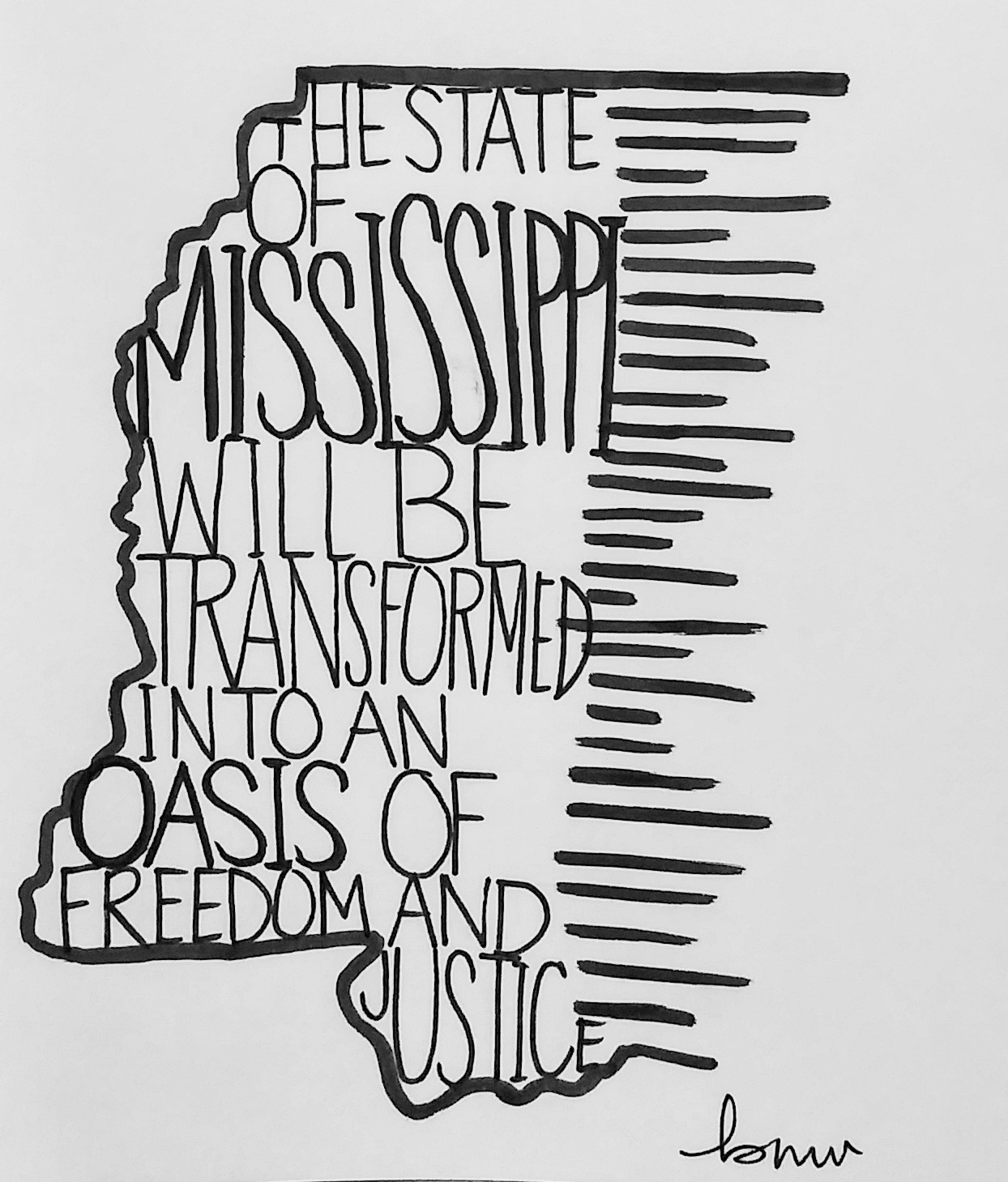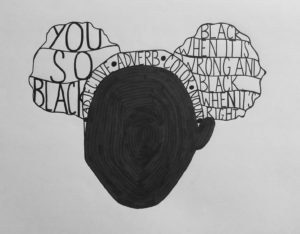“Get out of Mississippi.” My family drilled these words into my head at a young age. However, there is something about the Mississippi atmosphere that makes loving and leaving the state difficult because I am still here. My family is still here.
I had grown up under the tinted lens that Mississippi was the same state as it was thirty years ago, fifty years ago, etc. In some instances it is; however, this lens led me to believe that opportunity was everywhere else except the state I was born.
Upon traveling to potential states for our new home, my family soon realized that Mississippi wasn’t the worst place to live. We’d been used to the cool mornings and sweltering afternoons, the faint sounds of evening gunshots and sirens, the flickering lights of rundown shopping areas, and the sense of the familiar.
But what makes Mississippi hard to love?
When many people describe Mississippi, they use negative traits, calling Mississippi behind, racist, and lacking. The state’s dishonorable history overshadows its recent progress, and to me, the history’s overshadowing is as detestable as the history. People won’t give Mississippi a chance because of its past, but we must look at Mississippi’s present and towards its future.
The late Dr. Martin Luther King Jr. believed in a bright future for Mississippi. In his “I Have A Dream” speech, he says, “I have a dream that one day even the state of Mississippi, a desert state, sweltering with the heat of injustice and oppression, will be transformed into an oasis of freedom and justice.”
The state is presently and actively improving its setting for Mississippians in the case for racial healing and transformation by such improvements like the establishment of the Two Museums. The Two Museums—the Mississippi Civil Rights Museum and the Museum of Mississippi History—are great assets to captivate Mississippians and visitors with the culture of Mississippi, both past and present.
Although I believe the museums are great as stand-alone museums (since both encompass a wide span of time), the establishment of the museums together signifies that Mississippi recognizes both histories as fundamental to understanding where Mississippi has come from to where Mississippi is heading.
The state of Mississippi deserves more love for its efforts, but Mississippians have more to do. I asked a friend about her thoughts towards how Mississippi can improve the state for and she said, “It’s as simple as stop being racist and discriminating against people just because of their skin tone… just don’t be racist and think about other people’s feelings.”
The gist of her response is that people need empathy. My understanding of empathy is that empathy’s core is respect. Our society throws around words such as racial healing, systemic racism, and anti-racist to understand how to help our racial minority communities, but these broad terms and concepts forget or overlook, the need for respect.
Everyone has a different definition of respect and different philosophies about the word, but we need a new way to think about respect. This definition of respect— on a societal scale—is rarely seen. Respect is treating people like human beings—no terms and conditions—yet many people learn that “respect isn’t given, it’s earned”. This philosophy contradicts what respect should be.
Saying respect is earned suggests that respect is a rite of passage or a privilege you can bestow upon someone. “Respect isn’t earned, it’s given.” With this philosophy, respect won’t be considered a reactionary tool but a tool for better communication and empathy.
If we can look at a Black Mississippian, a Korean Mississippian, a Latina Mississippian, a biracial Mississippian, and see people—not others, not irregulars, not slurs—we’ll have transformation.



